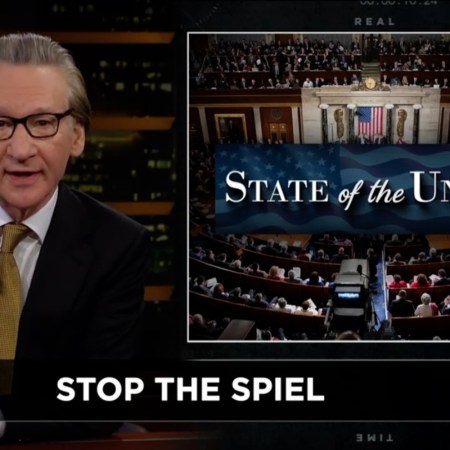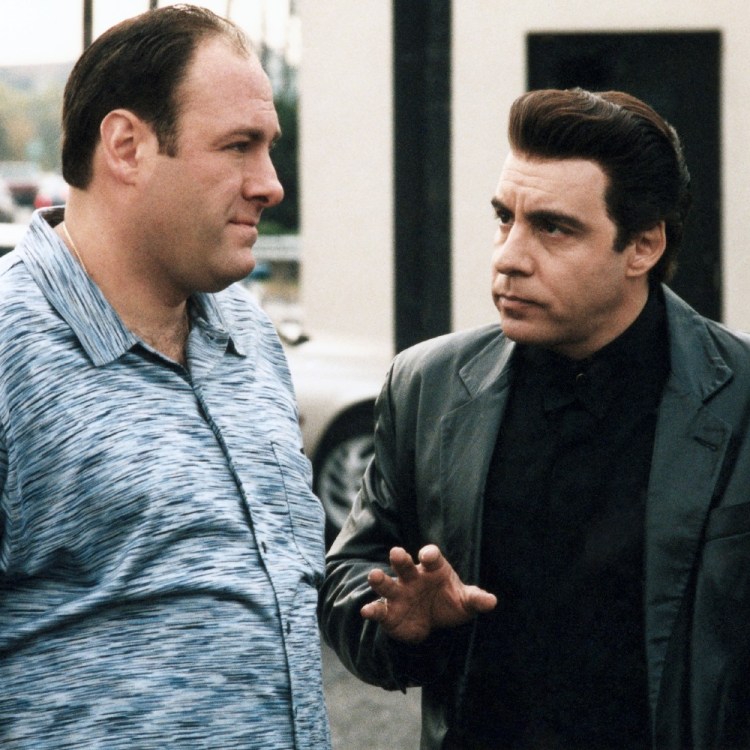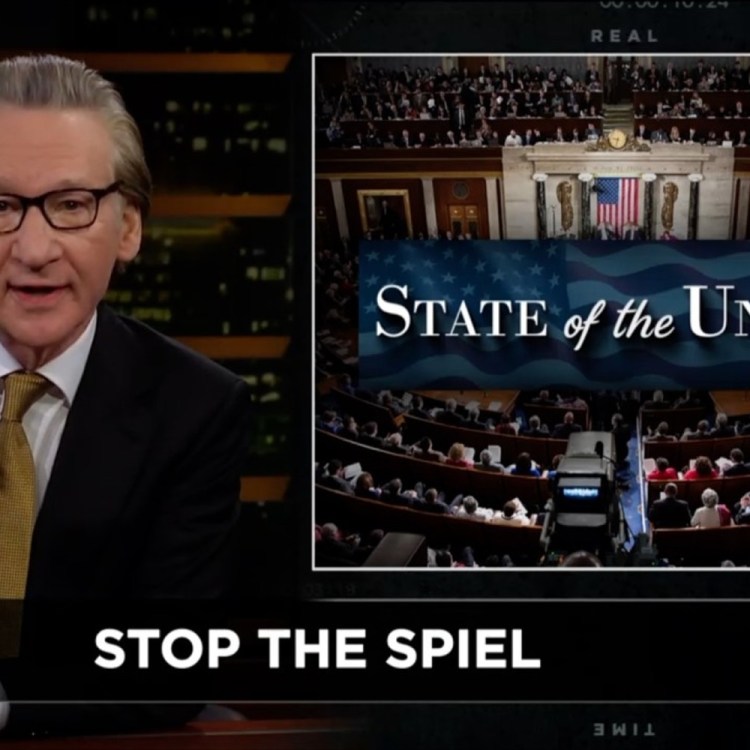Bill Maher opened the latest episode of Real Time With Bill Maher with some good news. California is set to reopen (albeit with its mask mandate still in place) on June 15, with the lowest COVID-19 positivity rates in the nation. “We’re still number 1 in herpes, though,” Maher added, both thumbs up.
Much of his opening monologue involved embattled Floridian Matt Gaetz — noting that he “always looks like he’s saying, ‘Eat it, nerd!’” and pointing out his resemblance to Mike Myers’s version of the Cat in the Hat. Maher followed this up with commentary on trickle-down economics, a riff on “Republican Ecstasy” and the obligatory dig at Lindsey Graham.
Maher’s spent a lot of time this season talking about California politics; earlier this year, one of his guests was Ezra Klein, who wrote a thoughtful take on California and governance. That this episode’s first guest was California Senator Alex Padilla suggested an interesting conversation would be in the works. The first topic of conversation: the very nature of representative democracy, with Maher noting the discrepancies between California and the Dakotas. Padilla acknowledged the issues here, both in terms of representation in the Senate and in the Electoral College.
Another line of debate in the interview pertained to factory farming, with Maher asking why California hadn’t used its political power to have the same effect on it as it had on vehicle emissions standards. Padilla argued that some progress was being made on both a state and national level, and cited Cory Booker’s work in the Senate on farming issues.
Maher also brought up the question of how Donald Trump had done in the 2020 election, improving on his numbers in several categories. “It’s a reminder that Democrats can’t take anything for granted,” Padilla said. Maher asked him to comment on Arizona Rep. Ruben Gallego’s comments about why Democrats should avoid using the term “Latinx,” which Padilla pushed back on. Padilla pointed out that, while there is debate over the use of the term, it is popular among younger generations, who are an increasingly large part of the electorate. To this, the crowd applauded.
“Very woke crowd tonight,” Maher quipped. “Gonna be a rough f*cking show coming up for you,” he said. (That was followed with a quick, “I’m kidding.”) But all told, Maher’s conversation with Padilla was one of the season’s best interviews — one that wrestled with large issues and found both participants making solid points.
The evening’s panel offered an interesting pair of debating partners: Color of Change’s Heather McGhee (author of The Sum Of Us: What Racism Costs Everyone And How We Can Prosper Together) and The Manhattan Institute’s Reihan Salam. Maher began with an announcement that had little to do with politics — he’d just been booked for his first comedy gig since the pandemic began, in Las Vegas later this summer.
Maher’s initial question was fairly general and related to the Biden infrastructure plan and, more broadly, increased government spending. It was not surprising that McGhee, the left-leaning panelist, was more supportive of this than Salam, the right-leaning panelist. The area where they found some overlap was in holding the government and its programs to high standards.
The subsequent conversation allowed both to elucidate their points further, with Salam raising concerns about the national deficit and McGhee making the case for public amenities. (Maher noted here that there had been a public pool near where he grew up, which he described as “a hole,” albeit a beloved one.)
From there, the subject turned to policing, a conversation sparked by the Derek Chauvin murder trial. “I think we want to live in a world where most of the things that lead to police interactions are stopped way beforehand,” McGhee said.
The second half of the panel found Maher responding to the controversy around Meyers Leonard making an anti-Semitic statement, and found him wondering openly if the response to Leonard’s statement was disproportionate. “Can we get on with our lives?” Maher asked. McGhee argued that this was indicative of a larger “zero tolerance” policy in multiple facets of American life, including school dress codes, which prompted a comparison to the “broken windows” theory of policing.
This led Maher to discuss the response to Republicans’ efforts to restrict voting in Georgia, and the responses to that from the likes of Coca-Cola and Major League Baseball. “We seem to be politicizing even the products that we use,” he said. “We’re taking this to the cereal aisle.” Salam mustered a defense of aspects of the Georgia law, which quickly led to wary responses from both Maher and McGhee, the latter of whom launched into a comprehensive rebuttal of the law in question.
New Rules brought the episode to a close, with Maher covering everything from plastic utensils to Facebook flagging a photo of onions for being indecent. The bulk of the segment found Maher arguing that the films nominated for Oscars this year are far too depressing. (Note: he also appears to spoil the endings of Minari and Promising Young Woman, for those who’d prefer to see those films spoiler-free.) “What happened to comfort food?” Maher asked, and compared the slate of nominees to “traffic school at the Holocaust Museum.” (Though he followed that with a dig at Godzilla vs. Kong as well.) It made for a strange note on which to end the episode, though all that had come before offered plenty to ponder.
Thanks for reading InsideHook. Sign up for our daily newsletter and be in the know.


















